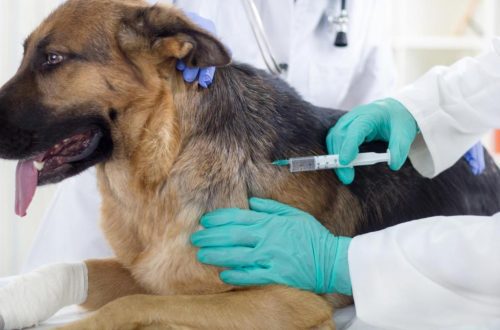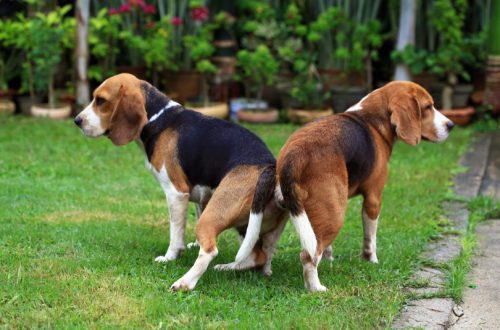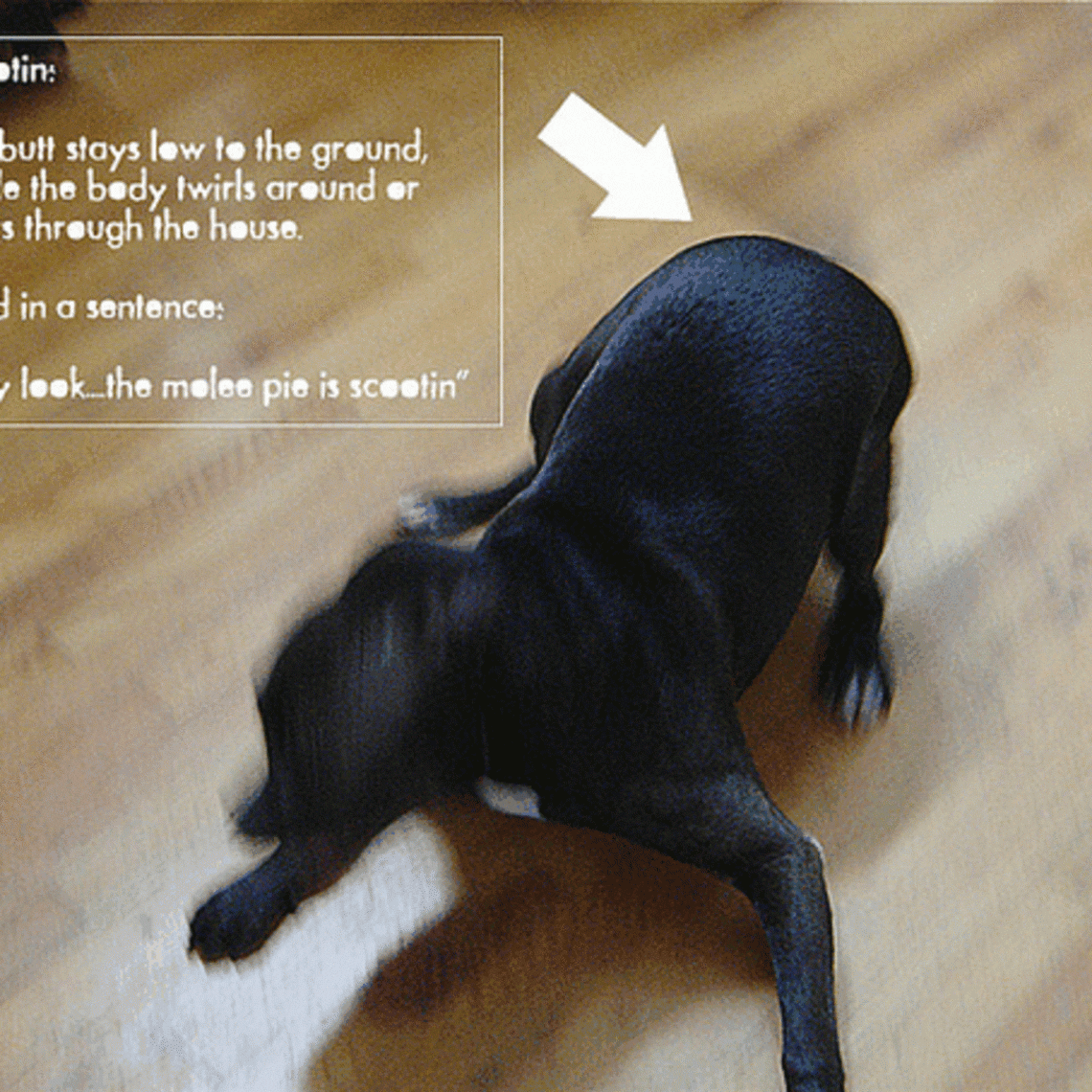
Why does a dog crawl on the priest on the floor and what does inflammation of the paraanal glands in dogs have to do with it
Sometimes owners notice that the dog rubs its back against the carpet or constantly licks the anus area. If this happens, you should pay attention to the condition of the paraanal glands of the pet. Although this is probably the last thing you want to look at, it must be remembered that such problems in dogs are quite common and are often the reason why the dog crawls on the floor of the buttocks.
Contents
Paraanal glands in dogs
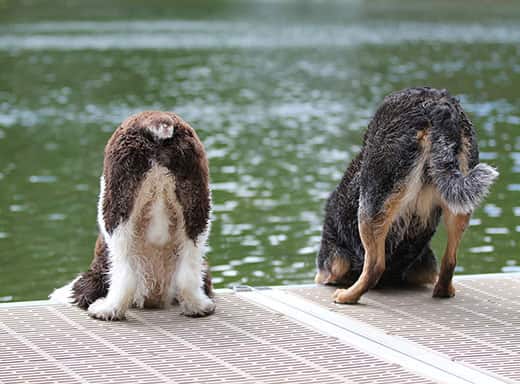 In the dog’s anus, on the inside of the rectum, there are two small sacs, one on each side inside the muscular wall. The Spruce. These sacs are gradually filled with the secret of the sebaceous glands located in them – the same ones that are located at the tips of the hair follicles and make unwashed hair greasy.
In the dog’s anus, on the inside of the rectum, there are two small sacs, one on each side inside the muscular wall. The Spruce. These sacs are gradually filled with the secret of the sebaceous glands located in them – the same ones that are located at the tips of the hair follicles and make unwashed hair greasy.
As you know, the only real function of these glands is communication between pets. These are the dogs that sniff when they greet each other. They also secrete a secret when the animal defecates and may make it easier for the pet to defecate. When working properly, these glands are emptied when the dog “does his big things.”
Anal Gland Problems in Dogs
Unfortunately, sometimes the operation of any system can fail. Stools that are too soft or small in volume do not provide enough pressure to empty the pouches. If the glands become congested to the point of causing discomfort to the dog, he will start rubbing his anus on the floor to get relief. This condition is called blockage of the paraanal glands in a dog. Preventive Vet.
Clogged para-anal glands in dogs not only cause discomfort, but, if left untreated, can become inflamed and abscessed. This will require antibiotic treatment. If the abscessed gland ruptures, the dog may need surgery and pain medication to ease the healing process.
Emptying the anal glands
If a dog begins to develop anal gland problems, human intervention may be required to help. Blocked anal glands must be emptied manually. This task can be performed by a veterinarian or a veterinary nurse. The procedure is also performed by some trained groomers in the grooming process, but it is always best to take your dog to a veterinarian.
To squeeze out the secretion of the dog’s para-anal glands manually, it is necessary to insert a gloved finger into the rectum to search for the gland and gently squeeze it to squeeze out the contents. If blockage of the paraanal glands becomes a constant problem, the pet may need to empty them prophylactically on a regular basis. You can do this at home on your own, but it is better to take a couple of lessons from professionals before making your own attempts. A dog that is frightened or in pain may get angry or run away. And given that this is by no means the most pleasant occupation in the world, perhaps you should still think about entrusting it to specialists.
Causes of Anal Gland Problems in Dogs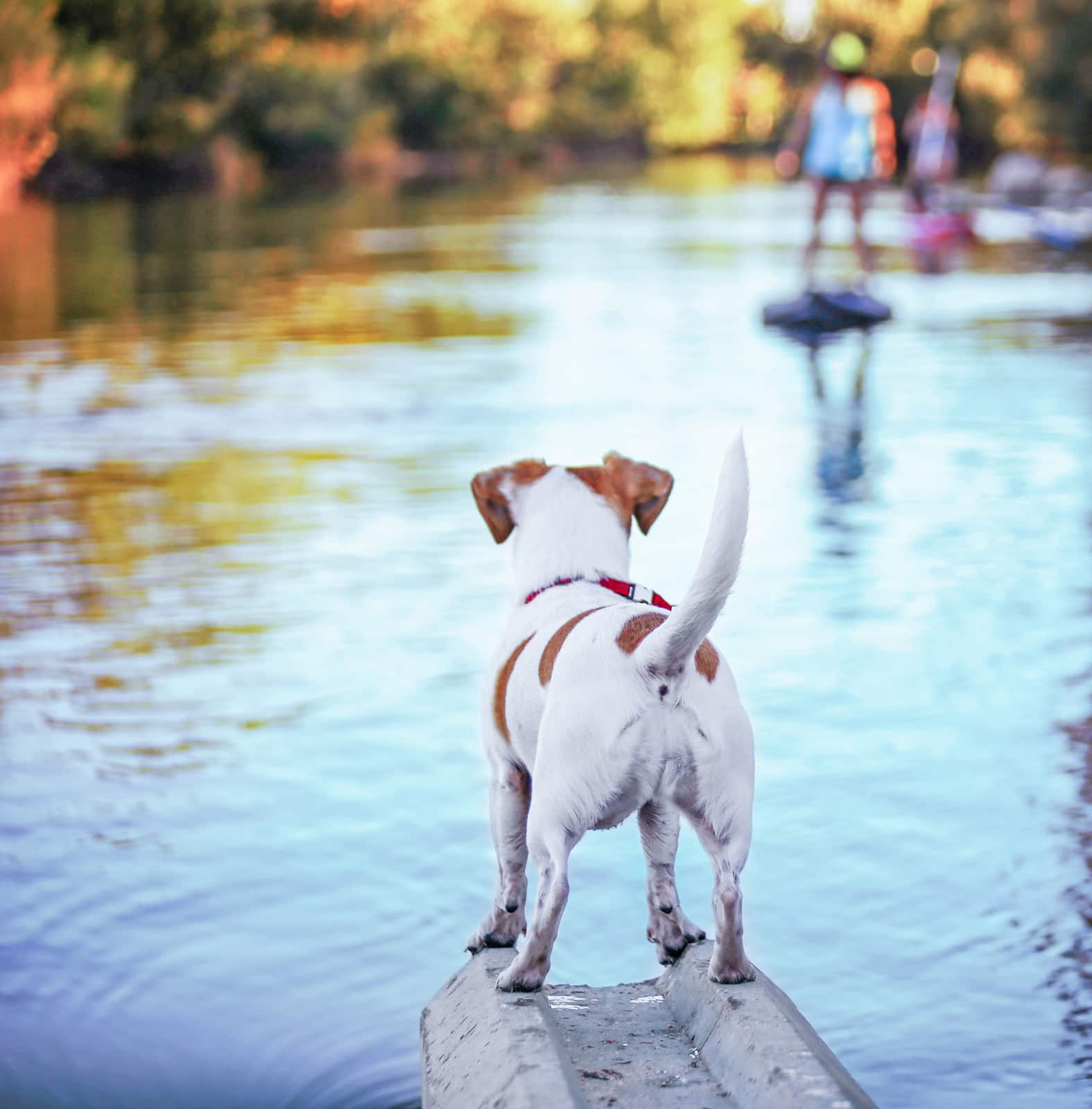
Blockage of the paraanal glands can contribute to the poor quality of the stool, writes Petfinder. As a result of constipation and diarrhea, the volume of stool may not be enough to empty the paraanal sacs. Another reason may be hereditary malformations of the paraanal glands.
Preventive Vet adds that chronic skin conditions, including fungal infections, skin or food allergies, or skin mites, can increase a dog’s risk of developing chronic anal gland problems.
Other contributory factors include thyroid dysfunction and obesity. In more rare cases, a tumor may be the cause. In addition, groomers sometimes empty the paraanal glands unnecessarily during grooming, which can lead to the formation of scar tissue that prevents the glands from emptying on their own. If the dog visits the groomer, it is important to make sure that he does not empty the pet’s glands too often, as this can end up doing more harm than good.
Symptoms of inflammation of the paraanal glands in dogs
While anus riding on the floor can be one of the possible symptoms of paraanal gland problems, there may be other reasons for this dog behavior. It could be a parasite infection or a digestive problem. Or maybe she just has an itchy butt. Typically, a dog with clogged anal glands will frequently rub its anus on the floor and lick the anus area regularly.
Signs of a glandular infection are redness or swelling around the anal sphincter, and blood or pus in the dog’s stool or on the carpet after she has ridden it backwards.
When to contact the veterinarian
If you suspect that your dog may have blocked anal glands, you should discuss the situation with your veterinarian. But if there is redness, swelling or pustules under the skin in the area of the dog’s anus that look like they are about to burst, most likely the gland is infected or abscessed. This means that the dog should be taken to the veterinarian as soon as possible. The rupture of an abscess is an emergency situation that requires immediate intervention to minimize harm to the animal and reduce its suffering.
In addition, you should contact your veterinarian if the blockage of the anal glands becomes a constant problem for the dog. He will be able to determine if the pet has an underlying disease that needs to be treated, such as a tumor or thyroid disease.
How to help if the dog’s anal glands are clogged
There are several steps that can be taken to prevent or reduce the chances of a recurrence of an anal blockage in a dog:
- Make sure your dog is getting enough fiber in his diet to have healthy stools. You can discuss with your veterinarian how to transition your dog to a diet designed specifically for healthy digestion and proper stool formation.
- If dogs are overweight, you should ask your veterinarian what steps you can take to help her reach and maintain a healthy weight.
- Interact with a veterinarian to identify and then treat or control any potential underlying causes.
- If your veterinarian approves, you can supplement your dog’s diet with fish oil, which Preventive Vet notes has anti-inflammatory properties and helps reduce irritation around clogged glands. As an alternative, he may recommend a diet fortified with fish oil.
- Make sure the dog’s para-anal glands are not emptied unnecessarily by the groomer.
Although these problems are unpleasant to think about, they are quite common. Therefore, it is worth being vigilant and monitoring their appearance. The next time your dog is rubbing his butt on the floor or licking his anus, it’s important to pay close attention to what’s going on there. Let the dog not be able to thank the owner with words, but she will definitely appreciate his desire to make her life easier.
See also:
- Why is my dog itching?
- First aid
- The most common dog diseases: symptoms and treatment
- Most Common Diseases in Older Dogs



